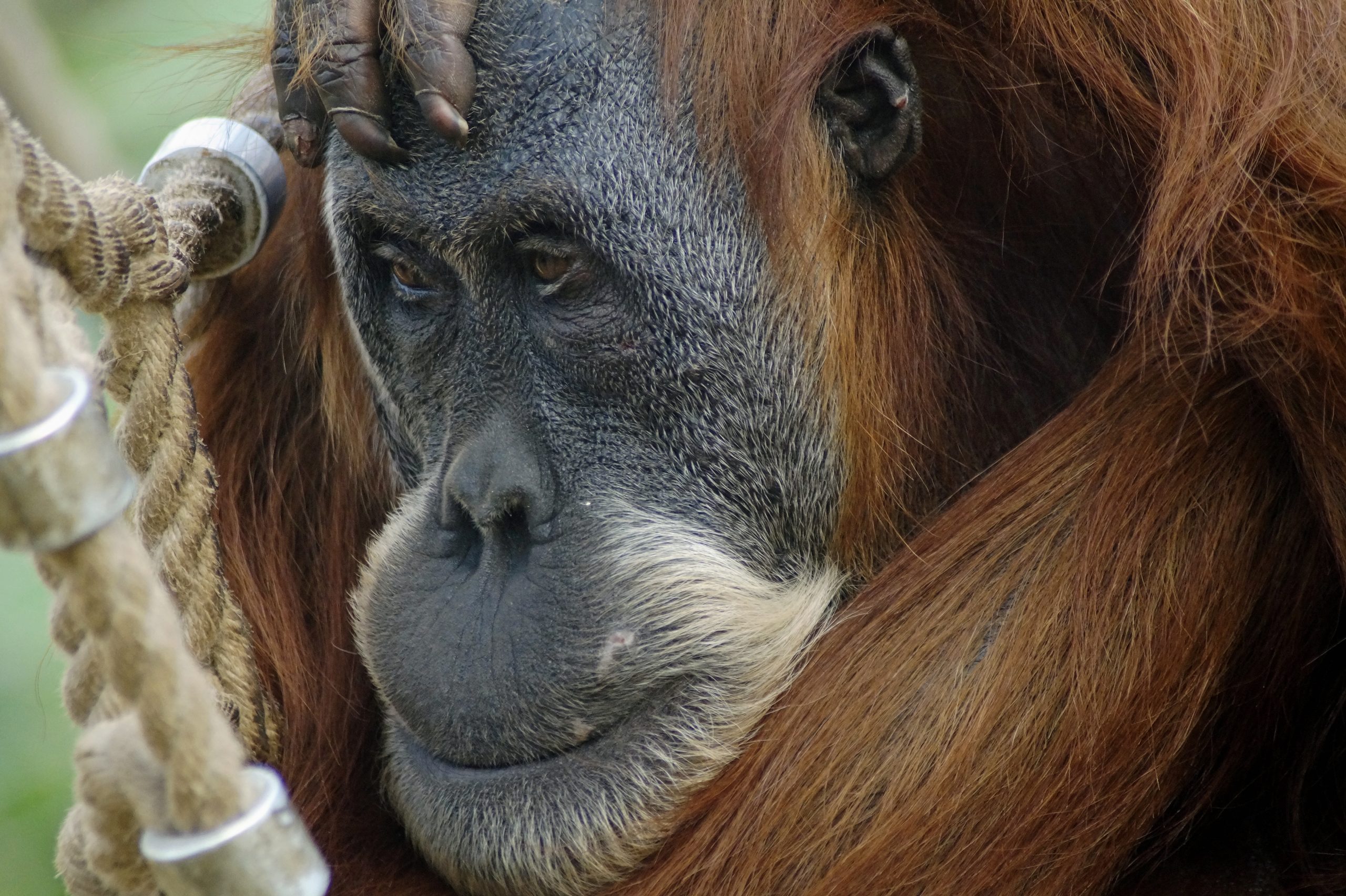Orangutans as great apes are probably known by everyone. Not as much known is that the “wood man” (translation of the term orangutan) is listed as critically endangered by IUCN. As endemic species, orangutans only live on the islands of Sumatra and Borneo in Indonesia – two islands, which are known for massively producing palm oil that destroys the habitat of the animals. The oil palm is very fruitful and thus a cheap product, which makes it an attractive product for the industries. 85% of the worldwide palm oil production is gained in Malaysia and Indonesia, the rain forest has to vanish for it. In nearly every household you can find products containing palm oil, e.g. in cosmetics, detergent, sweets, chocolate bars, fast food, frozen products or margarine – watch out for the list of content in your products and avoild palm oil! Yet also fuel is a problem these days. Seemingly eco-friendly fuel as Biodiesel and E10 massively contain palm oil: about 45% of the entire palm oil production in the EU is used for fuel!
Also other factors are endangering orangutans. Babies are still captured and sold on the Asian market. The capture happens by shooting the moms. Orangutans are similar to human beings and thus they can suffer similar diseases, which are brought in by human beings. All this, in combination with a slow reproduction rate leads to a decrease of about 2.000 animals each year. Given that there only are about 50.000 Bornean orangutans and 15.000 Sumatran orangutans left, this is a drastic quota.
Borneo Orangutan Survival fights against the extinction of a first kind of great apes. In Borneo BOS operates two rescue and rehabilitation centres, which host about 800 animals. Aim is to release all orangutans back to the wilderness who are able to survive on their own. With the help of an affiliate, BOS purchased woodlands, in which the apes can live.

Sumatra Orang Utan – Sumatran orangutan – Pongo abelii – Zoom Erlebniswelt Gelsenkirchen

Borneo Orang Utan – Bornean Orangutan – Pongo pygmaeus – Zoo Osnabrück
